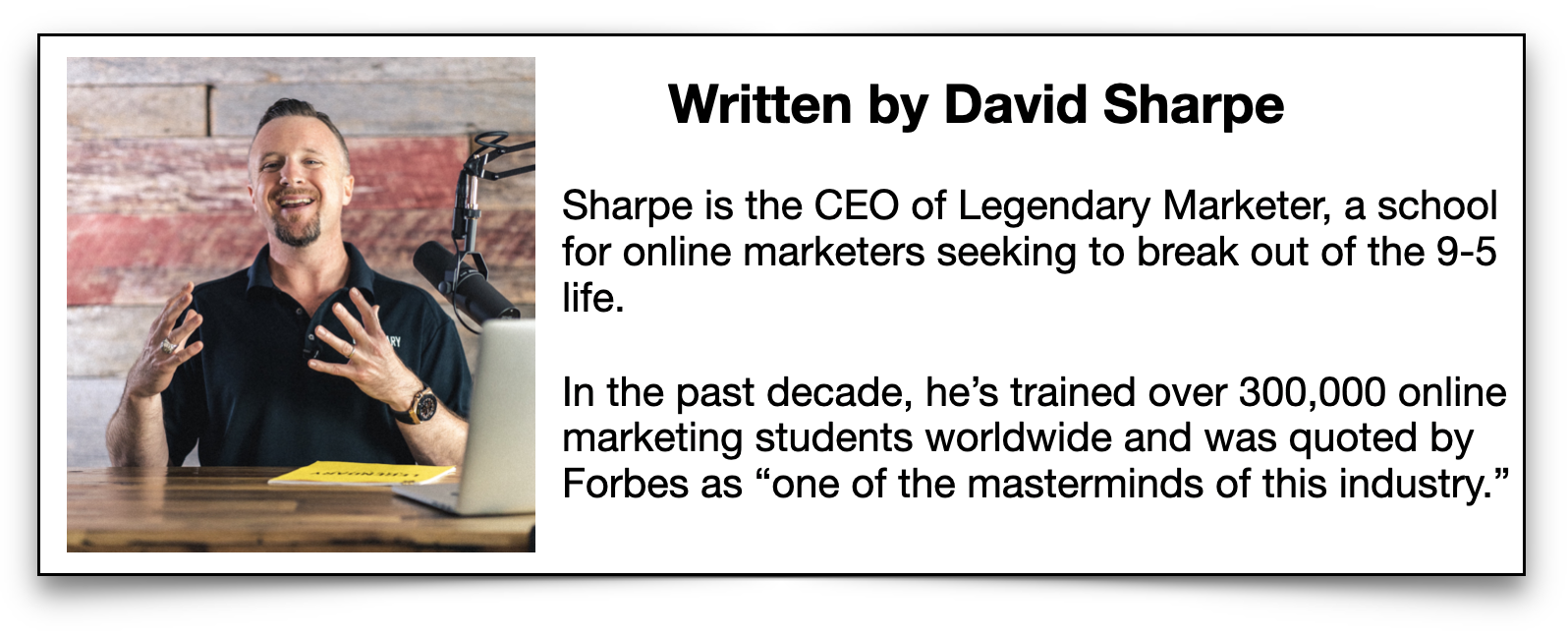
Did you know that affiliate marketing is a multi-billion dollar industry? Yes, a passive form of income for bloggers, vloggers, and other creators is now generating several billion dollars worth of profit.
If you’re anything like us, you want to learn more about affiliate marketing and how you can become an affiliate marketer. Whether you’re interested in making passive income or genuinely interested in becoming a marketer, you can work with an affiliate program.
To learn more about what affiliate marketing is and how affiliate marketing works, keep reading. We’re going to cover all of the basics that you need to know if you’re interested in affiliate marketing.
What Is Affiliate Marketing?
Simply put, affiliate marketing is the process of earning money by marketing another individual’s or business’s product or service. Basically, affiliate marketers recommend a product or service that they’ve used and liked and receive a small commission for advertising that product or service on a platform like YouTube or Instagram.
We should be clear that you are not entitled to a commission if you happen to mention a product. The company does not magically pay you for sharing your love of their product or service with your audience.
You have to sign up for a business’ affiliate program to make that ‘passive income’ that everyone is so excited about. If the business that you’re looking to work with doesn’t have an affiliate program, you need to sign with them independently. This means that you have to strike a deal with the individual or company that explicitly states how much money you’ll be receiving for mentioning/advertising their product or service.
That part is a little bit more complicated.
How Does Affiliate Marketing Work?
When it comes to actually getting started with affiliate marketing, there are a few more steps to take into account. Affiliate marketing isn’t a quick and fast process.
A few things need to happen before you’re paid that sweet, sweet cash that you’re looking forward to.
- Someone has to read or see the post/advertisement that you made about the product or service.
- That person clicks on a link that you’ve provided. This is known as an “affiliate link.” It brings that potential customer to the merchant’s website to look at the product or service that you recommended in your post.
- The person decides to buy the product or service (or complete whatever desired event that you advertised).
- You are paid a small commission for that purchase (or completed event).
Do you see what we mean? A lot of things need to happen in order for affiliate marketing to work.
While we’re on this subject, we should note that affiliate marketing doesn’t just have to be about shopping (although it often is).
An affiliate marketer can advertise a public event and get commissioned for every attendee that mentions his or her name. That marketer could be advertising views on a video or comments on a post.
This is why we refer to the consumer’s action as a “desired event.” It’s not necessary for the desired event to be a sale, although this is typically the case.
What About That “Affiliate Link?”
If you’ve been thinking about becoming involved in affiliate marketing, it’s likely that you’ve heard the term “affiliate link” already.
This coveted link is the envy of so many baby vloggers and bloggers. Luckily, it’s not that difficult to get.
The company or business that is compensating the blogger or vlogger for showcasing a product or service is usually the one to give out the affiliate link. For example, if you were the affiliate marketer, the company that you’re advertising for would give you the link.
In turn, you would then use that link as a part of the post, video, blog, or other forms of advertising. Without this link, you won’t get credit for the sales that you caused.
How Do Affiliate Links Work?
It’s time to get techy.
If you’re wondering how these affiliate links work, you need to understand just a little bit about how website links work. All websites are tagged with the HTTP protocol. This tag that appears at the front of every web address makes the website visitor stateless.
By “stateless,” we mean that the website won’t have any personal information about you. However, in order to credit an affiliate marketer, the website they’re marketing for has to have a way of knowing where you came from on the Internet. In other words, the website has to know that you came after reading or seeing the affiliate marketer’s post.
To do this, the business tags the special affiliate link with a cookie. Unfortunately, these aren’t the kind that you eat.
These cookies are tags on the website address that allow the website to see that you came from an affiliate marketer’s post. In turn, the business can then identify that there was a successful sale due to the advertisement. Therefore, the affiliate marketer gets paid.
It’s important to note that this cookie won’t be attached to the link forever (unless the affiliate marketing company has wired the link to work for a very long time). Usually, an affiliate link works with the cookie attached for about 30 days. However, this depends on the company and what their affiliate marketing policies are.
As an affiliate marketer, you’ll want a longer cookie duration. This means that someone who reads your post years from now can still give you credit for a sale. Without long-lasting cookies, you may be limited in how many sales you’re personally credited for.
More on Affiliate Marketing
After reading all of this information about affiliate marketing, we bet you’re excited to get started! There are lots of things to be excited about, so get ready by picking out the products you want to showcase and the businesses you want to work with.
For more about affiliate marketing, check out this free video to learn the tools you need to get started as a successful affiliate marketer.







